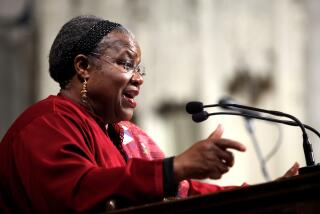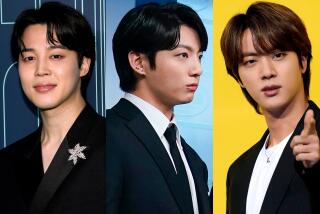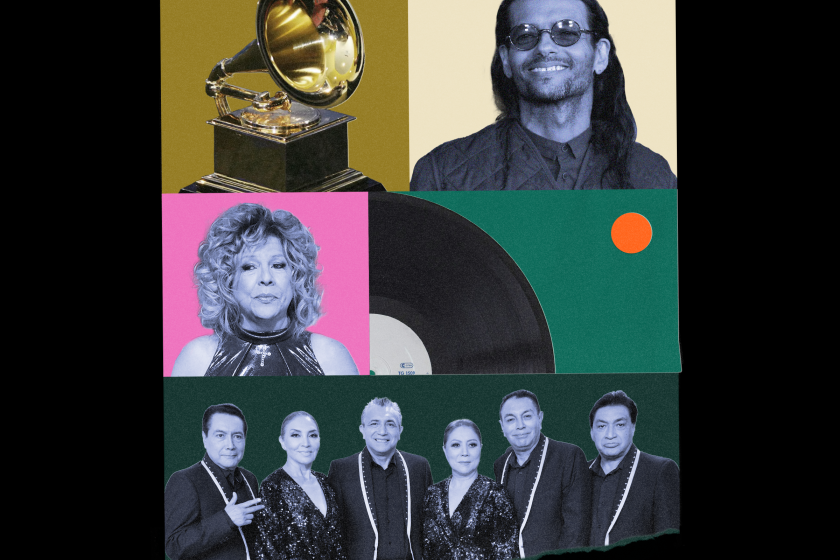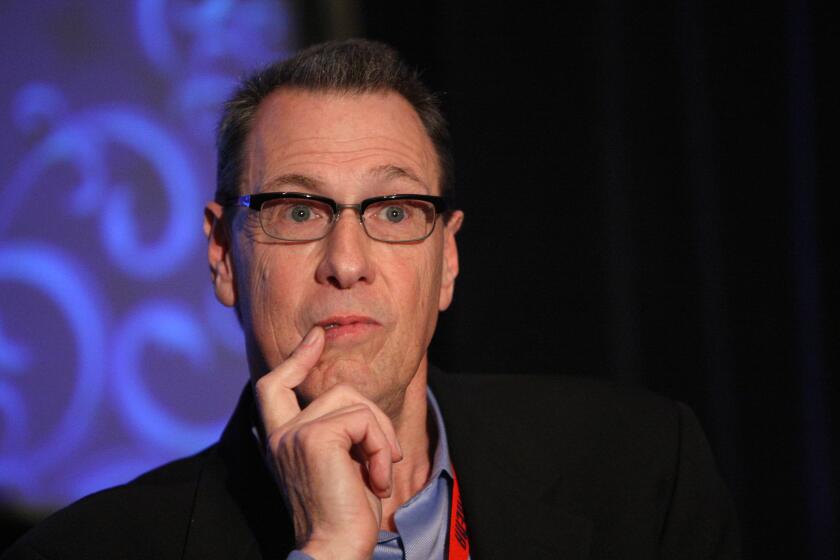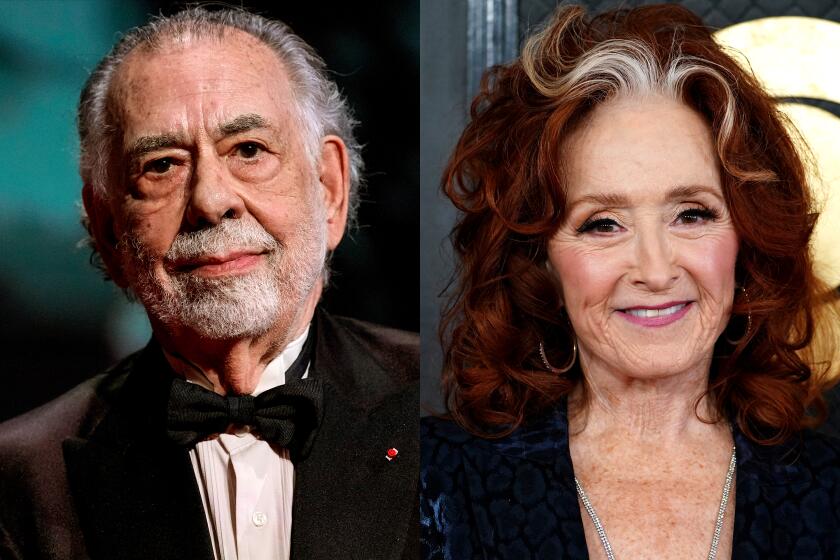Liberating Rap With Jazz Sound : Freestyle Fellowship Adds Riffs to Rhymes
Lots of people are pointing these days to Freestyle Fellowship as the most ambitious of all the new jazz-influenced rap groups.
And you certainly won’t get an argument on the point from Michael (Mikah 9) Troy, the leader of the Los Angeles group whose major label debut has been released by Island Records.
“We’re not dealing in false humility now,” laughs Troy, sipping a soft drink in a restaurant down the street from the West Hollywood office of Island Records.
“We need people to find out about us, so I’m here to blow our horn-- loud. We dare to be different. We look for the unique way, for the road nobody else has traveled. Nobody else--except maybe Pharcyde--is doing now.”
Most rappers’ explorations of jazz--from New York’s Digable Planets to Atlanta’s Arrested Development--amounts to rapping over jazz instrumentals, either live or sampled.
Freestyle does something much trickier: incorporating jazz rhythms into its raps, which have the improvisational ebb and flow and the random explosiveness of a jazz solo. Often the group sounds like a ‘90s version of those ‘50s Beat poets.
“Those standard sing-song raps are too easy and no challenge at all,” says Troy, 21, who works with Ornette (Jupiter) Glenn, Edwin (Aceyalone) Hayes, Mtulazaji (Peace) Davis and Kiilu (DJ Kiilu) Beckwith. “We do double-time passages and runs and riffs. We improvise and play off of each other’s words and sounds--like jazz musicians do.”
Heroes of the L.A. underground since 1990 when they first got together, Freestyle is finally edging into the pop limelight with its first major label album, “Innercity Griots.” The title is somewhat misleading. The band doesn’t get into political or social commentary about the Los Angeles riots.
“There’s no real message--no attempts at profundity,” Troy says. “We address the homeless issue on a song like ‘Park Bench People.’ But we’re not into messages. People may say that we should talk more about what the gangsta rappers talk about, but we’ll leave that to those rappers. We’d rather broaden our musical horizons than complain.”
Pressed to catagorize the group, Troy, after a long silence, says: “What we are is liberators, liberating rap from its R&B;/funk structures--that 4/4 (time) prison. We use all sorts of time signatures. We explore like crazy.”
Like much cutting-edge material, Freestyle’s songs aren’t for everyone. Rap fans accustomed to popular artists like Dr. Dre and the Geto Boys may not have the patience for Freestyle’s fanciful flights. That’s why the group’s primary forum is stations that tend toward adventurous programming.
Troy, who was raised by his mother in Los Angeles’ South-Central district, has been rapping since he was a sixth-grader. “I always felt I had a calling,” said Troy, who went to Dorsey High with Glenn. “It was the only way to release the wild feelings in me. Music seemed to be the way to do it but other forms of music were too expensive. I couldn’t afford special schools or instruments. You can teach yourself to rap.”
As for influences, Troy cites a wide range of artists, from singer Abbey Lincoln and poets such as the Last Poets to jazzmen Miles Davis and John Coltrane. He also gets inspiration from an unusual source.
“It may sound funny, but a big motivator for me is birds,” he says. “When I come home late at night, there are finches and sparrows singing. I listen to the way they sing, the way their sounds blend. I try to duplicate in some way what they do.”
Hayes, who went to Van Nuys’ Birmingham High, and Glenn have been his rapping partners from the beginning, while Davis, from Watts’ Locke High, and Beckwith, of University High in West Los Angeles, joined them in 1990. With the Good Life Health Food Center, a South-Central community center, as its forum, the group began to take shape.
The group’s 1991 album, “To Whom It May Concern,” released through the band’s own label, Sunshine Music, enhanced Freestyle’s underground reputation and attracted major record companies, with the Island signing last year.
Though finally receiving mainstream recognition, there’s a cloud over Freestyle’s future. Glenn has been in jail for six weeks, facing an armed robbery charge in a West L.A. court. “If he can’t beat the rap, we’ll go on and do our best without him,” Troy says. “We’re pushing to be pioneers and we can’t stop for anything.”
While he admittedly glows with pride whenever Freestyle is acclaimed as a ground-breaking unit, Troy acknowledges that other artists, such as Stetsasonic and MC Jazz, have explored this terrain before. “But it was probably too soon for them,” he said. “Rap had to become more standardized before it was really time for it to branch out. I think now’s the time.”
More to Read
The biggest entertainment stories
Get our big stories about Hollywood, film, television, music, arts, culture and more right in your inbox as soon as they publish.
You may occasionally receive promotional content from the Los Angeles Times.
